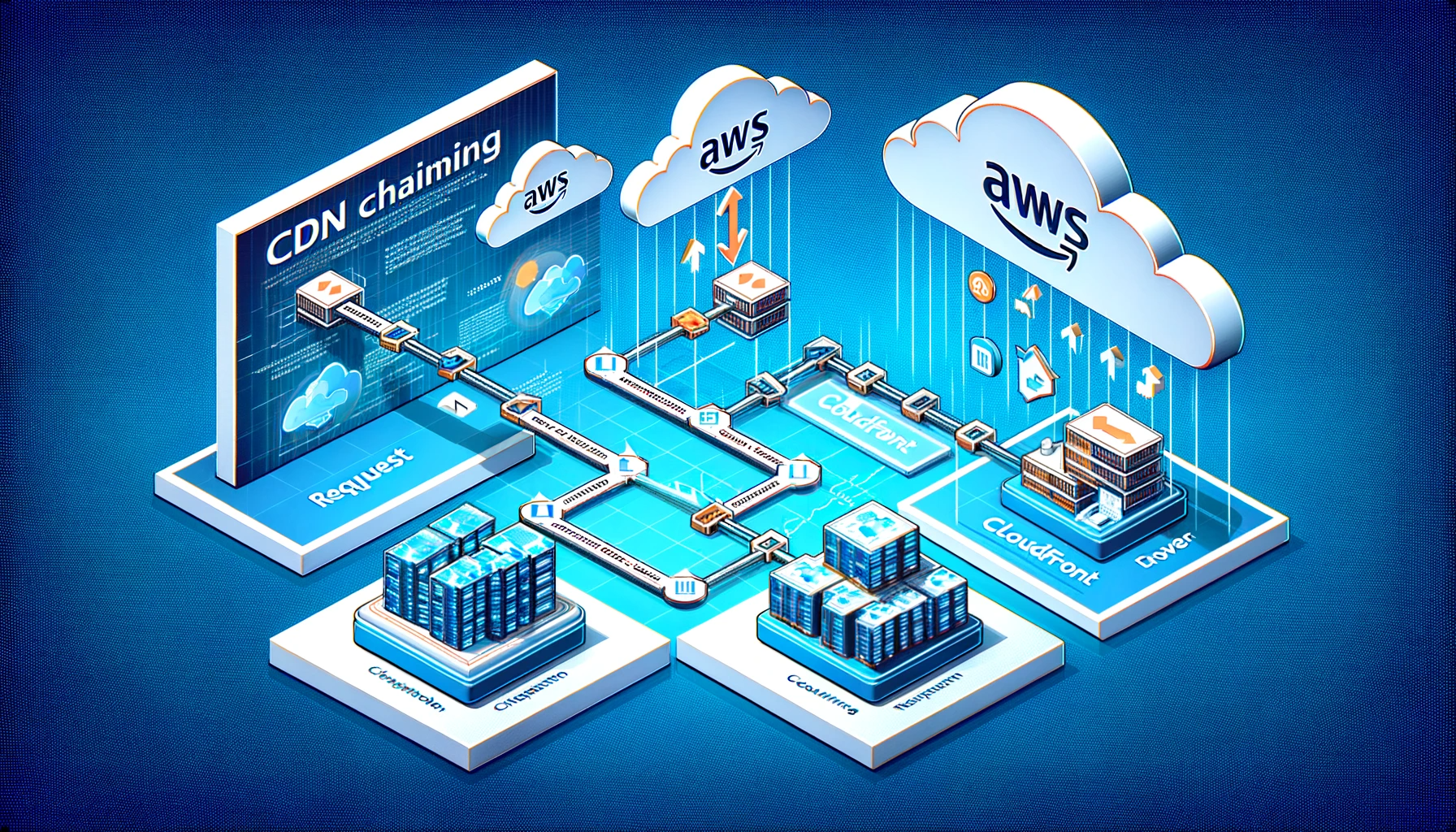Introduction
In the dynamic world of web content delivery, the efficiency and speed of a Content Delivery Network (CDN) are crucial for ensuring a superior user experience. CDN chaining, the strategy of using multiple CDNs in tandem, is gaining traction as a method to enhance performance while optimizing costs. This blog delves into how integrating Cloudflare and AWS CloudFront, two leading CDN services, can create a robust, cost-effective solution for content delivery.
Understanding CDN Chaining
CDN chaining involves leveraging the strengths of different CDNs to deliver content. This approach can be particularly effective when different CDNs have distinct advantages, such as wider geographic coverage, better performance in certain regions, or specific feature sets.
Cloudflare and AWS CloudFront: A Strategic Combination
- Cloudflare: With a vast network of over 200 data centers worldwide, Cloudflare offers rapid content delivery and enhanced security features. It uses Anycast technology for traffic routing, thereby reducing latency and improving overall website performance. Cloudflare’s pricing structure includes a free basic plan, with more advanced features available in paid plans starting at $20 per month.
- AWS CloudFront: Boasting a similar global reach, AWS CloudFront excels in its seamless integration with other AWS services. It offers detailed real-time logs and metrics, crucial for performance monitoring and troubleshooting. The pricing model is pay-as-you-go, providing flexibility and a free tier for lower usage levels.
Cost Optimization with CDN Chaining
- Price Class Configurations in AWS CloudFront: By selecting appropriate price classes, users can exclude more expensive edge locations, effectively reducing costs without significantly impacting latency.
- Cache Optimization Strategies: Optimizing cache hit ratios, especially for applications hosted outside AWS, can lead to substantial cost reductions. This is achieved by refining cache policies and controlling cache keys in CloudFront.
- Data Compression Techniques: Utilizing AWS CloudFront’s data compression capabilities, such as GZIP or Brotli, can significantly decrease data transfer costs.
- Reducing Cache Invalidation Requests: By managing caching strategies effectively, the need for cache invalidation requests, which incur additional costs, can be minimized.
Balancing Scalability and Security
- Scalability: Both Cloudflare and AWS CloudFront offer scalable solutions, with AWS CloudFront providing more flexibility and customization options.
- Security Features: Cloudflare stands out for its range of security services, including free SSL certificates and DDoS protection. AWS CloudFront, more traditional in its approach, complements its content delivery with additional AWS services for enhanced security.
Conclusion
Integrating Cloudflare and AWS CloudFront through CDN chaining presents a compelling strategy for optimizing web content delivery. This combination harnesses the strengths of both services, providing a balanced mix of speed, security, and cost efficiency. By understanding and utilizing the unique features of each CDN, businesses can significantly enhance their online presence while keeping overheads in check.
Understanding the intricacies of CDN chaining and its potential benefits is essential for any organization looking to improve its online infrastructure. With the right approach, Cloudflare and AWS CloudFront can be pivotal in achieving a high-performing, secure, and cost-effective web presence.


































![[SOLVED] – Cpanel Stucked as GRUB after reboot](https://www.zolute.net/wp-content/uploads/2019/01/cpanel-deprecated-mysql-error-100x70.jpg)